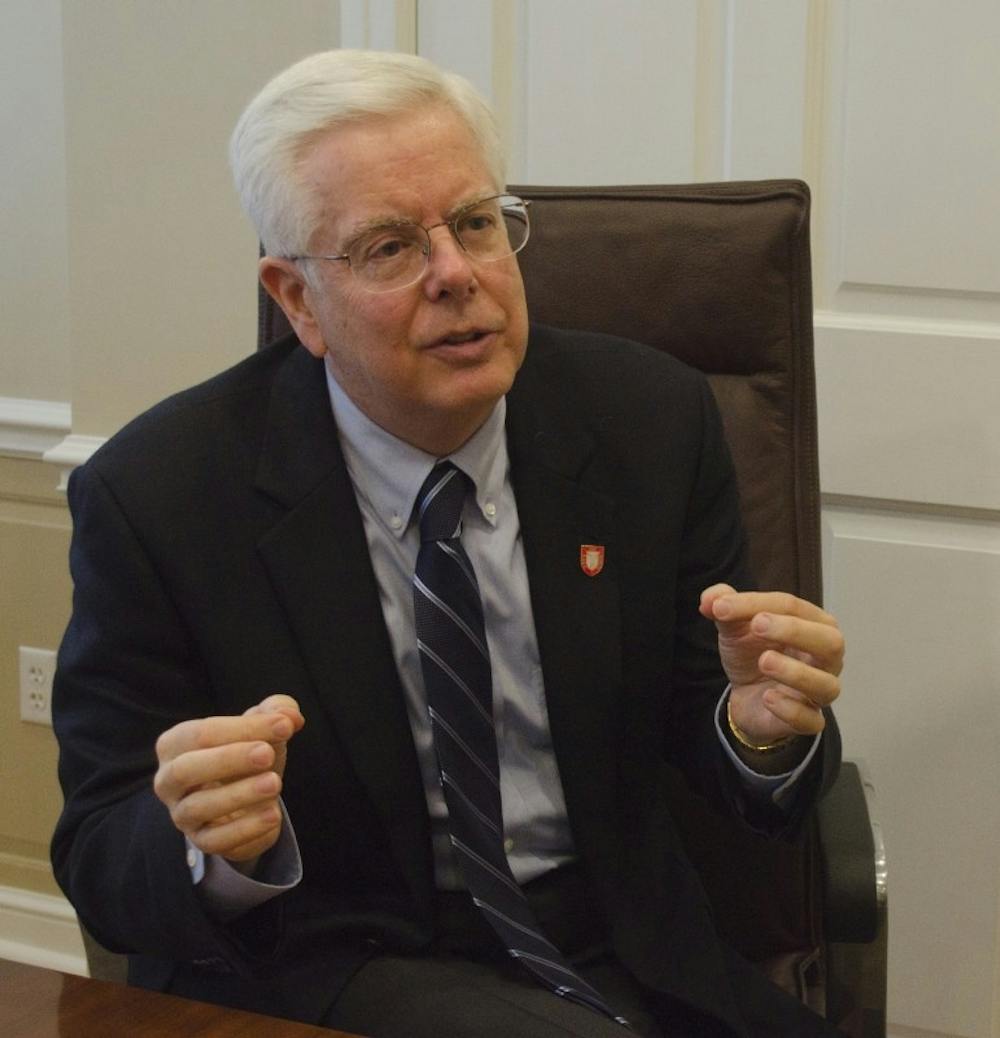Missed something? Read the rest of the Daily News' Ferguson coverage here.
Since President Paul W. Ferguson’s resignation, students and faculty have demanded to know the reason for his abrupt departure.
One lawyer is calling the situation "face saving for both sides."
See the details on his severance contract here.
“[The university] say[s], 'The hell with it, you’re out of here,'” said Gerry Goldsholle, founder and CEO of FreeAdvice.com and a lawyer since 1964. “'We’ll claim for purposes of the contract, it’ll be a termination without cause, for purposes of what you say to the press, you say it was a resignation, and let’s get on with our lives.'”
This way, Ferguson wouldn’t be able to bad mouth or sue the university, and the university would be under the same restrictions.
Read: Trustee chairman says there's no scandal with Ferguson's resignation
While it may benefit both the university and Ferguson, Goldsholle said the agreement may not help students.
“Unfortunately, the students wind up paying for [the resignation], and the state winds up paying for it, and it ends up increasing tuition for everybody,” Goldsholle said. “This is a standard thing in an employment situation.”
Goldsholle said the termination could be due to any number of things — ranging from a mistake in the hiring process to a misunderstanding of the job duties.
“[The severance pay] becomes a regionally inexpensive way of wrapping it up,” he said. “It sounds like a lot of money, but compared to the cost of pending litigation, it’s not.”
By saying he resigned, Ferguson would be able to still get the severance pay, and it would reduce the public outcry that may come from terminating him without cause.
The more than half a million dollars Ferguson will be getting in severance pay will be, in part, coming from student and taxpayer’s pockets.
The money for the severance fees is from the general fund, which comes from state appropriations, student tuition and fees, gifts, grants, contracted services and sales, and other “miscellaneous sources,” said Joan Todd, university spokesperson.
Although Todd said Ferguson’s severance won’t have an impact on tuition and fees for next year, student money is still being used. Ferguson’s salary was already built into the budget for this year.
Terry King, who took over for Ferguson as acting president, will receive a monthly stipend in addition to his regular salary, which also comes out of the general fund, Todd said.
|
Missed something? |





